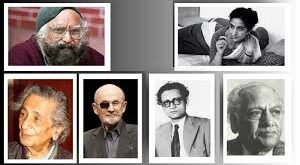Have you ever wondered what it would be like to live inside someone else’s head? Literature has always tried to portray the inner workings of the mind, but few techniques do it as effectively as stream-of-consciousness writing. Unlike traditional storytelling, this style breaks away from neat plots and polished dialogue, instead mirroring how our thoughts actually wander fragmented, emotional, and often unfiltered.
Here are four remarkable novels that experiment with this style and invite you to experience the raw pulse of human consciousness.
Clarice Lispector’s Agua Viva: Writing the Present Moment
Lispector’s Agua Viva is not a story in the usual sense it is a plunge into the immediacy of life. Without chapters, structure, or narrative progression, the novel reads like a prolonged meditation, an inner monologue that tries to seize the fleeting moment.
The narrator’s reflections unfold in lyrical, almost hypnotic prose. Every sensation, every minor detail of the “now,” becomes the focus. Instead of telling a tale, Lispector immerses readers in the act of being present. For those looking for literature that feels like an open-ended conversation with the self, Agua Viva is an extraordinary experience.
Fragmented Reflections in Pessoa’s The Book of Disquiet
While Lispector captures flow, Fernando Pessoa’s The Book of Disquiet thrives in fragmentation. Described as a “factless autobiography,” the work is a compilation of thoughts, impressions, and musings written under the semi-fictional persona Bernardo Soares.
Rather than telling a complete story, Pessoa assembles hundreds of disjointed entries sometimes philosophical, sometimes mundane that reflect the unsettled rhythm of the human mind. This fractured structure is not a flaw but a deliberate stylistic choice, making the book feel like the diary of a consciousness in motion. Readers searching for deep, philosophical insights delivered in poetic fragments will find this a rewarding read.
Jean Rhys’s Good Morning, Midnight: The Voice of Alienation
In Good Morning, Midnight, Jean Rhys gives us Sasha, a woman wandering through Paris with a mind heavy with loss and regret. Through her inner voice, readers accompany her to cafes, bars, and hotel rooms, where her thoughts constantly drift back to the pain of failed relationships, fading hopes, and the difficulty of belonging.
Rhys’s prose captures the vulnerability of a woman confronting her past while adrift in the present. The novel doesn’t shy away from loneliness and grief but instead brings them forward with startling honesty. In Sasha’s reflections, readers find an unflinching portrayal of alienation in the modern world.
Virginia Woolf’s The Waves: A Chorus of Consciousnes
Virginia Woolf’s The Waves is unlike any other novel of its time. Told entirely through soliloquies of six different characters, the book traces their lives from childhood to old age, weaving their voices together like strands of music.
Instead of a single narrator, Woolf creates a tapestry of overlapping consciousnesses. Themes of identity, time, and mortality echo through the characters’ voices, forming a narrative that feels more like a symphony than a story. The novel’s beauty lies in its rhythm its ability to blur the line between individual thought and collective human experience.
Why These Novels Still Matter
Stream-of-consciousness fiction is not just an experiment in style it’s a mirror of the human psyche. These books capture the way thoughts actually occur: sudden, incomplete, emotional, and deeply personal. In an era where attention is scattered and inner dialogue runs ceaselessly, these novels feel timeless and surprisingly relevant.
They don’t simply tell stories; they allow us to inhabit another consciousness. Each book offers a chance to momentarily live another life, to see the world through eyes and minds different from our own.
Final Word
From Lispector’s exploration of the present in Agua Viva to Woolf’s polyphonic masterpiece The Waves, these works stand as milestones in experimental literature. They challenge traditional storytelling but, in return, provide readers with something more intimate: the chance to experience thought itself.
For readers eager to dive into novels that prioritize being over plot, these four books are essential journeys into the landscape of the human mind.
 Digital Scoop India Official Platform of Digital Scoop India Featuring Latest & Best News #Articles #Bytes #Entertainment #DigitalScoopMagazine
Digital Scoop India Official Platform of Digital Scoop India Featuring Latest & Best News #Articles #Bytes #Entertainment #DigitalScoopMagazine



